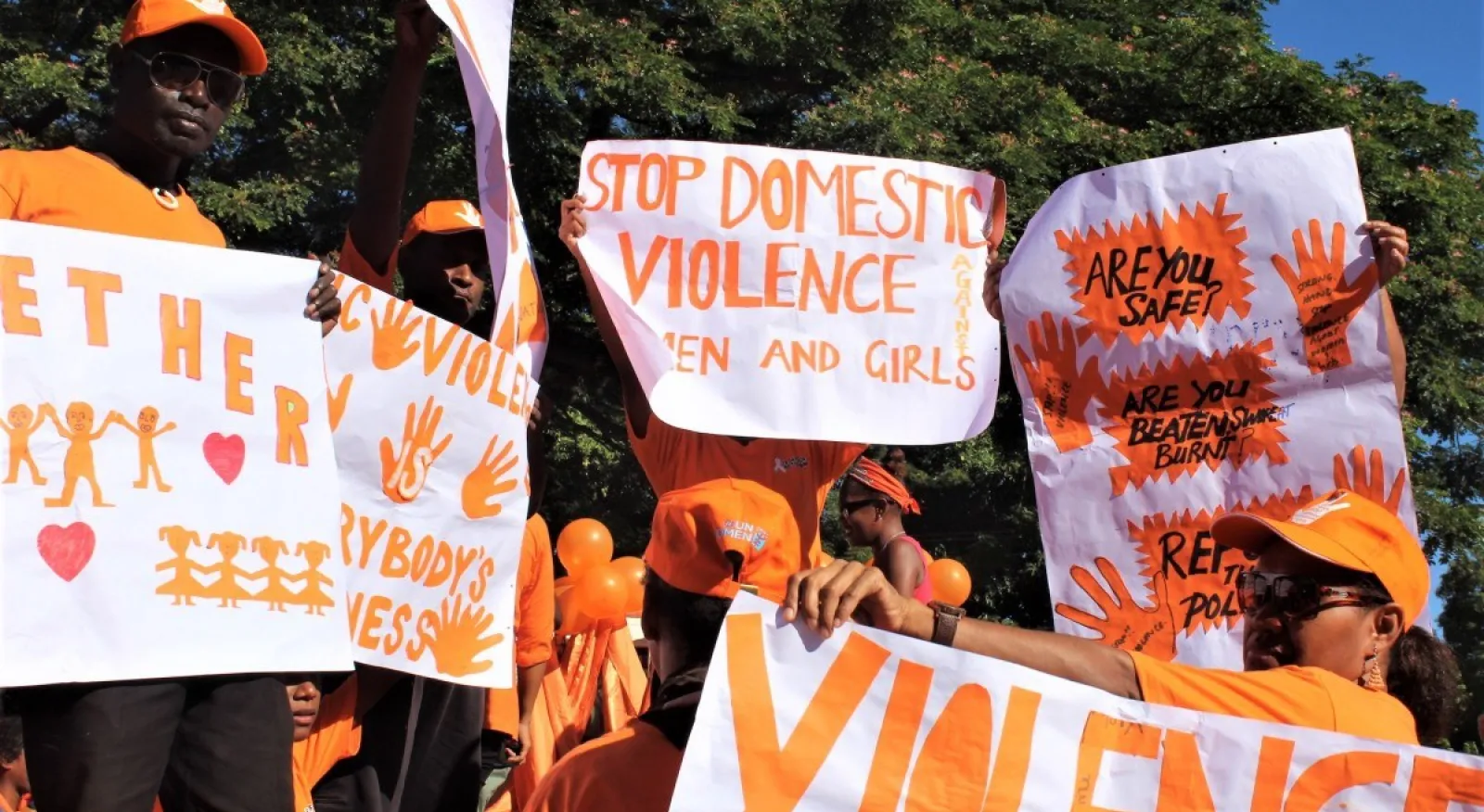Working to end violence against women
Discover how two of our partners in Solomon Islands and Kiribati are working to enhance gender equality, eliminate violence against women and support women’s empowerment.

Ministry of Women, Youth, Children and Family Affairs, Solomon Islands
The Pacific region has some of the highest rates of violence against women recorded in the world – twice the global average, with an estimated two in every three Pacific women impacted by gender-based violence.
The Ministry of Women, Youth, Children and Family Affairs is the lead national government agency in Solomon Islands promoting, protecting and fulfilling the rights of women, young people, children and families.
Australian volunteer Mel Pryde undertook an assignment with the Ministry to support the organisation as a Gender Technical Support Officer to help advance its objectives in ending violence against women.
According to the partner organisation, Mel’s support has been vital in helping the Ministry progress change at a policy and coordination level.
‘With Mel’s help, we have strengthened policy implementation and multi-stakeholder coordination at a national level to better address violence against women and children in Solomon Islands,’ says Vaela Devesi, Director at the Ministry.
‘One key aspect of this work was strengthening the Safenet Network – a network of various government and civil society service providers for domestic violence survivors. A key function of the network is ensuring referral pathways and minimum standards of service practice for survivors of domestic violence are implemented.
'The network has become more organised and has increased its reach from being a solely Honiara-based initiative to establishing presence in four other provinces in Solomon Islands.’
During her assignment Mel, who has professional qualifications in counselling, provided technical assistance to finalise Domestic Violence Counselling Guidelines.
These were the first set of national guidelines for domestic violence counselling service providers in Solomon Islands.
‘Volunteering with the Ministry is one of the most rewarding things I’ve ever done,' says Mel.
'I’m passionate about my work in prevention of violence against women and girls and being able to support the Solomon Islands’ government with implementing measures to improve safety and support services for survivors of violence was an incredible opportunity.
'It was a privilege to work in the Women’s Development Division and to learn so much from the expertise of my colleagues. The relationships I made there are by far the most important thing I’ll take away from my time in Solomon Islands,’ says Mel.
Kiribati Women and Children Support Centre
the Kiribati Women and Children Support Centre (KWCSC) provides legal information, a survivor support fund and training and community outreach.
It is also the lead agency for The Convention on the Elimination of all Forms of Discrimination Against Women (CEDAW), an international treaty adopted in 1979 by the United Nations General Assembly.
The centre has enhanced its capacity to implement CEDAW and The Committee on the Rights of the Child reporting and analysis with the support of Australian volunteer Legal Support Mentor Taya Ketelaar-Jones.
‘I had the privilege of providing legal support to KWCSC through the Australian Volunteers Program. KWCSC is at the forefront of the campaign against violence against women in Kiribati. This motivated me to help build the organisation’s capacity to continue its work promoting the safety and wellbeing of women and children in Kiribati,’ says Taya.
Having a strong evidence base is vital to KWCSC’s advocacy and awareness raising with stakeholders across government, civil society and at a community level. Taya’s support has given staff at the centre more confidence in their role as the lead agency for reporting, and as a member of SafeNet Committee, a multi-stakeholder group comprised of relevant service providers in Kiribati.
‘Counsellors at the centre have enhanced their capacity thanks to the training Taya provided. She also assisted staff with developing their ability to draft reports and look into issues more deeply. She did a lot of things besides her key assignment duties and has helped us with mentoring and debriefing to help solve issues and to try to respond to client cases better,’ says KWCSC Executive Director, Teretia Tokam.
‘The respect and support we have now is really significant. Whenever the case comes to the police, they immediately refer to us as they know we will deal with it efficiently.’
*Research source: Synthesis report for The Gender Equality Research commissioned by the Australian Volunteers Program. The Gender Equality Research was undertaken (April-June 2021) by Iris Low and Leaine Robinson of CoLAB, a Fiji based development consultancy.